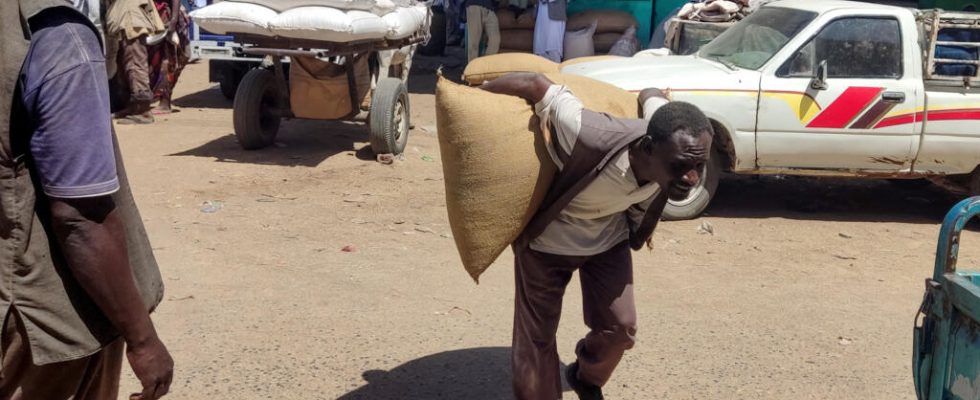World hunger is increasing. This is indicated in the FAO’s annual report on food crises published this Wednesday, April 24. Last year, more than 280 million people were in a situation of acute malnutrition, or 24 million more than in 2022. Affected by conflicts, climate change and economic shocks, three aggravating factors, the Africa is not spared from the deterioration of the situation, while the continent remains shaken by serious conflicts which fuel major food insecurity.
2 mins
At Sudan, a country plunged into war for a year, 20.3 million people faced a high level of food insecurity between June and September. And what is already the biggest regional food crisis risks further deterioration.
Beyond the national territory, the war has consequences on a regional scale. The displacement of millions of civilians Central African RepublicAt Chad or to South Sudan weakens countries already in great food difficulty.
Further south, the DRC has the most acutely food insecure people in the world, according to the report. More than 25.8 million people face it, including 2.8 million children. A phenomenon aggravated by a conflict in North Kivu.
If the report published this Wednesday estimates that 2 million people could be out of acute food insecurity by June, the number should be taken with perspective, according to Aurélien Mellin, emergency and rehabilitation manager within the organization for Agriculture and Food of the United Nations.
Alongside conflicts and instability, extreme heat waves also directly impact the food situation of populations. At Maliwhere temperatures reach records, the meteorological phenomenon largely undermines agricultural harvests and available resources, a situation observed in all Sahelian countries.
And then, for the first time since the report was published eight years ago, the Senegal is one of the countries suffering from a major food crisis. The cause: as in Mali, the climatic situation, but also price inflation. The double factor has plunged 1.3 million people into a situation of food vulnerability.
To address this global emergency, the Secretary General of theUNAntónio Guterres, calls for strengthening humanitarian funding.
